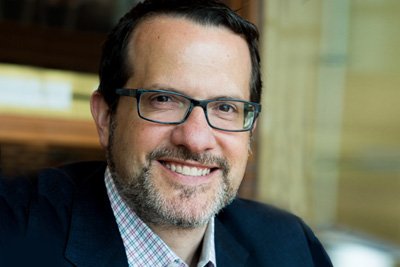Regenstrief Research Scientist Aaron Carroll, M.D., M.S., and a team of experts were chosen by the National Institutes of Health (NIH) to create a podcast series exploring science and what’s being called the reproducibility crisis.
Dr. Carroll is a nationally sought-after expert in health policy and research, writing regularly for the New York Times and The Atlantic. He also hosts a popular podcast called Healthcare Triage. In partnership with the NIH, Dr. Carroll launched a special series of Healthcare Triage focused on science and reproducibility. Expert guests and the host discuss the existing scientific culture and the fact that as much as half of scientific studies are producing results that are false.
In the podcast, experts were interviewed to gain insight into the issue. The interviews dug into questions about academic incentives, publishing and funding practices, training and mentorship, how the media plays into the problem, and finally, what can be done to fix things.
The high-quality series is composed of eight episodes. Dr. Carroll and his team’s intent is for the podcast series to be a valuable resource for the academic community as well as a “module” that people can use when teaching others about issues of reproducibility in research, specifically around the culture of science. Lesson plans have been built around the podcast so they can be used in classes or groups to discuss the issues.
listen to the podcast and read the lesson plans
About Aaron Carroll, M.D., M.S.
In addition to his role at Regenstrief, Dr. Carroll is Indiana University’s inaugural chief health officer and a distinguished professor of pediatrics and associate dean for research mentoring at the IU School of Medicine.
He is the author of “The Bad Food Bible,” published in 2017, and the co-author of three additional books on medical myths. He is also a current contributing opinion writer at The New York Times, co-editor-in-chief at The Incidental Economist, an evidence-based health policy blog, and a previous contributor to The Upshot at The New York Times.
About Regenstrief Institute
Founded in 1969 in Indianapolis, the Regenstrief Institute is a local, national and global leader dedicated to a world where better information empowers people to end disease and realize true health. A key research partner to Indiana University, Regenstrief and its research scientists are responsible for a growing number of major healthcare innovations and studies. Examples range from the development of global health information technology standards that enable the use and interoperability of electronic health records to improving patient-physician communications, to creating models of care that inform practice and improve the lives of patients around the globe.
Sam Regenstrief, a nationally successful entrepreneur from Connersville, Indiana, founded the institute with the goal of making healthcare more efficient and accessible for everyone. His vision continues to guide the institute’s research mission.
About IU School of Medicine
IU School of Medicine is the largest medical school in the U.S. and is annually ranked among the top medical schools in the nation by U.S. News & World Report. The school offers high-quality medical education, access to leading medical research and rich campus life in nine Indiana cities, including rural and urban locations consistently recognized for livability.







